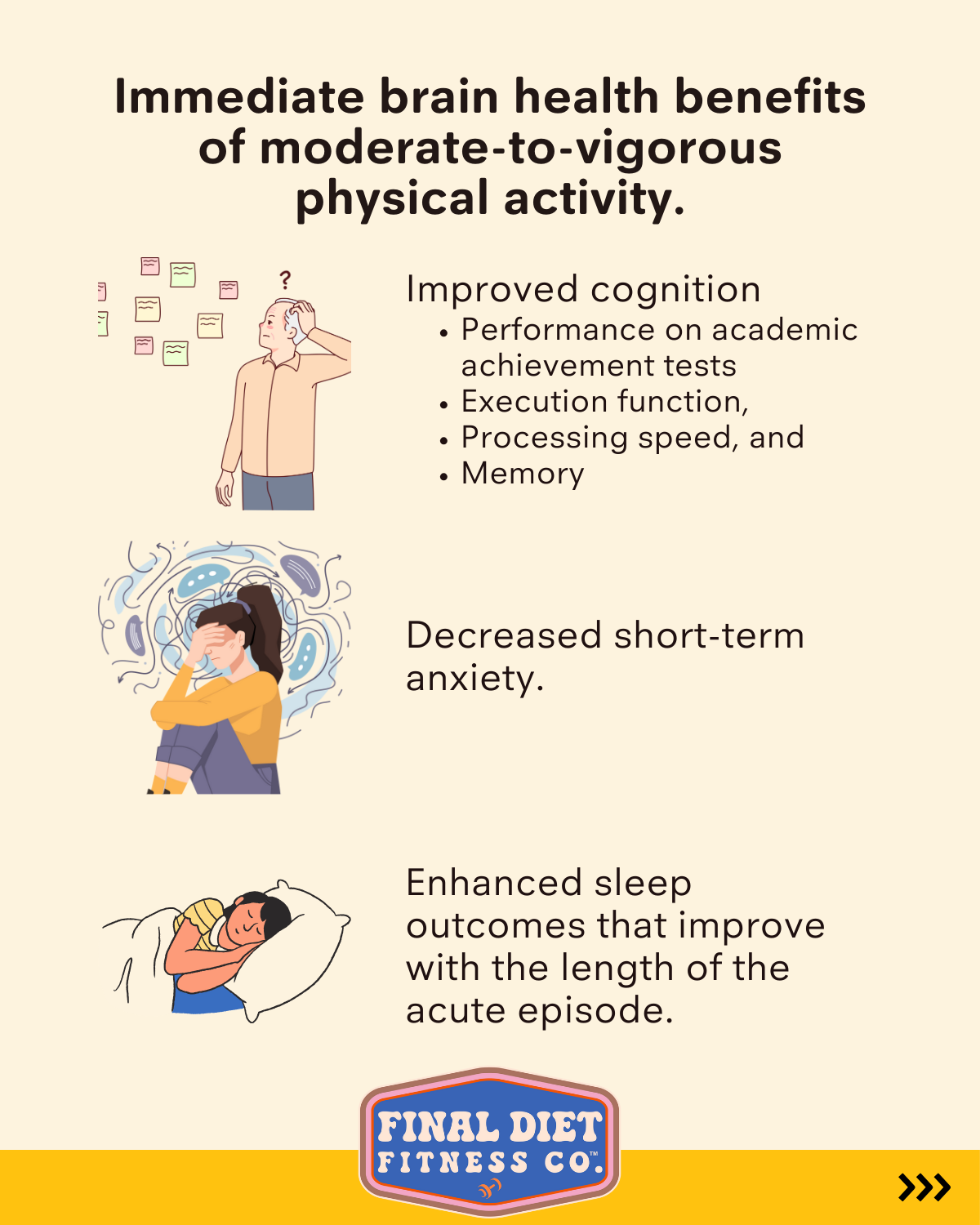
Engaging in physical activity isn’t just beneficial for your body—it has immediate, positive effects on your brain as well. Whether it's a brisk walk, a quick workout, or a vigorous exercise routine, the impact on your mental health and cognitive functions is profound. Here are the key brain health benefits of moderate-to-vigorous physical activity:
1. Improved Cognition 🧠
Exercise increases blood flow to the brain, enhancing cognitive functions. Studies show that moderate-to-vigorous physical activity can boost mental clarity, focus, and overall brain performance. By engaging in regular exercise, you’re helping to keep your mind sharp and ready to tackle any challenge.
💡 Tip: Even just 20-30 minutes of exercise can lead to noticeable improvements in cognition.
2. Better Academic Performance 🎓
Physical activity has been linked to improved performance on academic achievement tests. Students who engage in regular physical activity often experience increased concentration, attention, and the ability to retain information. This means that exercise isn’t just for the body—it’s essential for the brain's learning and memory functions as well.
💡 Tip: Try scheduling exercise sessions before study periods to enhance memory retention and focus.
3. Enhanced Executive Function 📊
Executive functions refer to higher-level cognitive skills, including problem-solving, decision-making, and multitasking. Moderate-to-vigorous physical activity helps stimulate these areas of the brain, improving your ability to organize, plan, and execute tasks.
💡 Tip: Engage in a short, intense workout during breaks to refresh and recharge your executive function.
4. Faster Processing Speed ⚡
Exercise also plays a key role in improving the speed at which your brain processes information. With increased blood flow, brain cells communicate faster, allowing you to make decisions, react, and solve problems more efficiently.
💡 Tip: Quick bursts of exercise, such as HIIT, can help enhance your reaction time and cognitive agility.
5. Memory Boost 🧠
Physical activity positively impacts both short- and long-term memory. It has been shown to promote the growth of new brain cells, especially in areas responsible for memory retention. Regular moderate-to-vigorous exercise can help improve recall, boost learning abilities, and reduce the risk of memory-related issues over time.
💡 Tip: Regular aerobic exercise like running or swimming can help keep memory sharp and reduce age-related decline.
6. Decreased Short-Term Anxiety 😌
Exercise has immediate benefits for mental health, particularly in reducing short-term anxiety. After moderate-to-vigorous activity, your body releases endorphins, the "feel-good" hormones, leading to a reduction in stress and anxiety.
💡 Tip: A 20-minute walk or jog can significantly lower anxiety levels and improve your mood.
7. Enhanced Sleep Outcomes 😴
Physical activity improves sleep quality, with the benefits increasing with the length of the acute episode. After a moderate-to-vigorous workout, your body naturally enters a state of relaxation, which aids in falling asleep faster and enjoying deeper sleep cycles.
💡 Tip: Try to exercise in the morning or afternoon to avoid disrupting your sleep cycle and help promote better sleep at night.







